Master Cannabis Genetics: Cloning Cannabis Plants
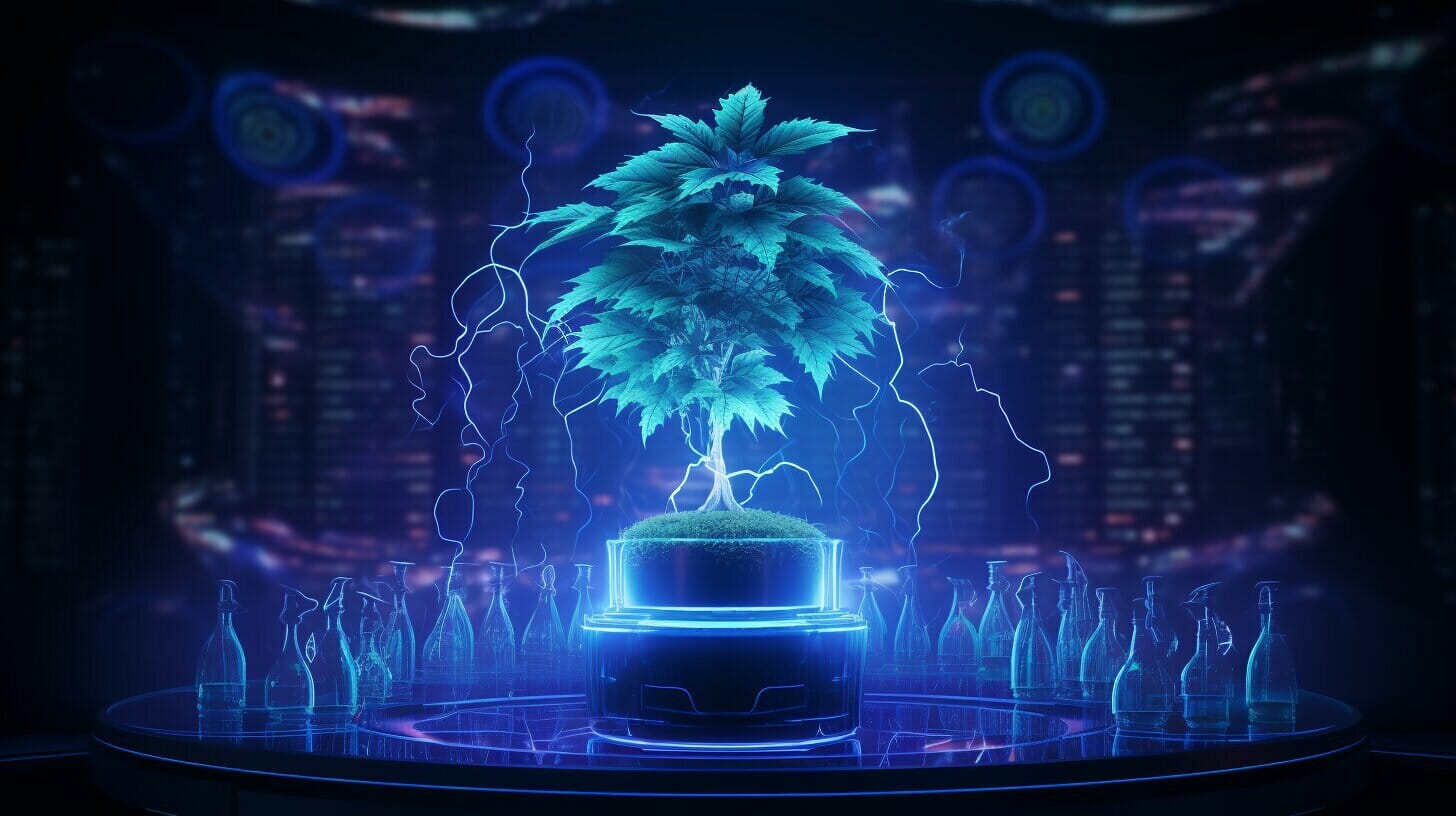
Welcome to our in-depth guide on cloning cannabis. In order to level up your clone game, you must first understand the basics of cannabis genetics and its impact on clone quality. By selecting and maintaining healthy mother plants, choosing the right cloning techniques, and creating an ideal environment for clones to thrive, you can produce high-quality clones that will enhance your overall yield and potency.
In this article, we will provide a comprehensive overview of cannabis genetics and its importance in the clone game. We will offer tips and strategies for selecting and maintaining healthy mother plants, choosing the right cloning techniques, and troubleshooting common cloning issues. Whether you are a beginner or an experienced grower, this guide will help you take your clone game to the next level.
Key Takeaways:
- Cannabis genetics plays a crucial role in producing high-quality clones.
- Mastering the clone game can lead to superior harvest quality in terms of yield, potency, and overall plant performance.
- Selecting and maintaining healthy mother plants is essential for successful cloning.
- Choosing the right cloning techniques and creating an ideal environment for clones to thrive are also important factors.
- Troubleshooting common cloning issues and implementing advanced strategies can further enhance your clone game mastery.
Understanding Cannabis Genetics
Before diving into the specifics of clone cultivation, it is essential to understand the basics of cannabis genetics. Cannabis plants are classified into three distinct species: Cannabis Sativa, Cannabis Indica, and Cannabis Ruderalis. These species have varying physical and chemical characteristics that are determined by their genetic makeup.
Within each species, there are numerous strains, each with its unique genetics that affect the plant’s growth, morphology, and chemical composition. These genetic variations contribute significantly to the overall quality of the clones produced from the plants.
Cannabis genetics play a crucial role in determining desirable plant characteristics such as yield, potency, and flavor. By understanding the role of genetics, growers can select and breed plants that exhibit desirable traits for successful cloning.
The Role of Genetics in Determining Plant Characteristics
The genetic makeup of a cannabis plant determines its physical and chemical properties. For example, some strains are taller and more slender than others, while others have a more bushy and compact growth pattern. Genetic variations also affect key components such as cannabinoid and terpene content, which ultimately impact the plant’s potency and flavor profiles.
It is crucial to understand the genetics of cannabis plants when cultivating clones as it directly impacts their quality and growth. When selecting mother plants for cloning, growers must choose plants with desirable genetics that will produce high-quality clones.
Why Understanding Cannabis Genetics is Crucial for Successful Cloning
By understanding the genetics of cannabis plants, growers can produce clones with desirable traits that will ultimately lead to a better yield. For example, if a grower desires a plant with high THC content, they can select mother plants with genetics that are known for producing high levels of THC and clone them to produce offspring with the same genetics and thereby, achieve a high THC content.
Furthermore, by understanding the genetics of cannabis plants, growers can avoid undesirable traits in their clones. For instance, if a grower wants to avoid plants prone to pests and diseases, they can select mothers with genetics that have proven to be more resistant to pests and diseases to produce clones with the same traits.
Overall, understanding cannabis genetics is a crucial component of successful cloning. By selecting healthy plants with desirable genetics and reproducing them precisely, growers can produce high-quality clones that will lead to a superior harvest.

The Importance of Cloning Cannabis
Mastering the clone game is crucial for any cannabis grower seeking to achieve superior harvest quality. Healthy, well-rooted clones can produce higher yields, increased potency, and overall better plant performance.
Cloning also offers advantages over other propagation methods, such as faster turnaround time and the ability to preserve desirable genetic traits. However, to achieve these benefits, it is essential to understand and master cannabis genetics.
The quality of your clones is directly impacted by genetics, so selecting and maintaining healthy mother plants is key. In addition, choosing the right cloning techniques, using essential tools and supplies, and creating the perfect cloning environment are vital for successful clone development.
By following best practices and troubleshooting common issues, growers can optimize their clone game for maximum success. For those looking to take it to the next level, advanced strategies such as tissue culturing and nutrient optimization can further enhance their cloning results.
Overall, mastering cannabis genetics and the clone game is a game-changer for any cannabis grower seeking high-quality, potent harvests.
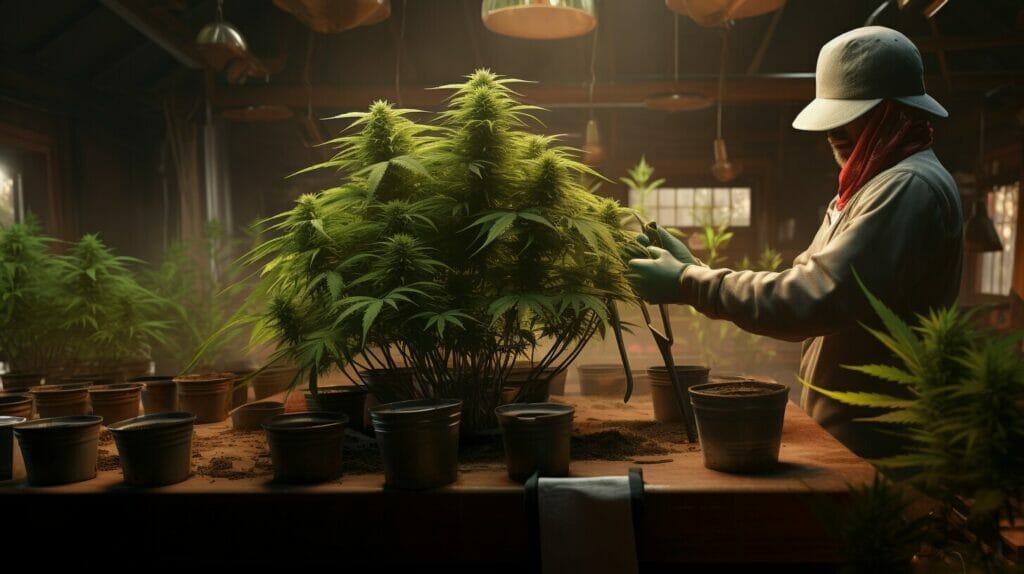
Starting with Healthy Mother Plants
When it comes to cannabis cloning techniques and clone game mastery, starting with healthy mother plants is crucial. Selecting the right genetics and maintaining overall plant health are critical factors that directly impact the quality of your clones.
Begin by choosing a mother plant with desirable traits, such as potency, yield, and growth habits. It’s important to select a plant that is at least two to three months old and has been well-maintained. Avoid using plants that have been stressed, damaged, or exposed to pests and diseases.
When selecting mother plants, pay attention to their genetic makeup. Choose plants with a stable genetic lineage, as this will ensure consistency in your clones. Look for reputable seed banks or clone providers to source high-quality genetics.
To maintain healthy mother plants, provide them with appropriate nutrients and growing conditions. Ensure that they receive sufficient light, water, and air circulation. Regularly prune and pinch them to encourage bushier growth.
It’s also essential to monitor mother plants for signs of stress, disease, or nutrient deficiencies. Early detection and treatment are critical for preventing these issues from spreading to your clones.
By starting with healthy mother plants, you can set the foundation for successful cloning and clone game mastery.
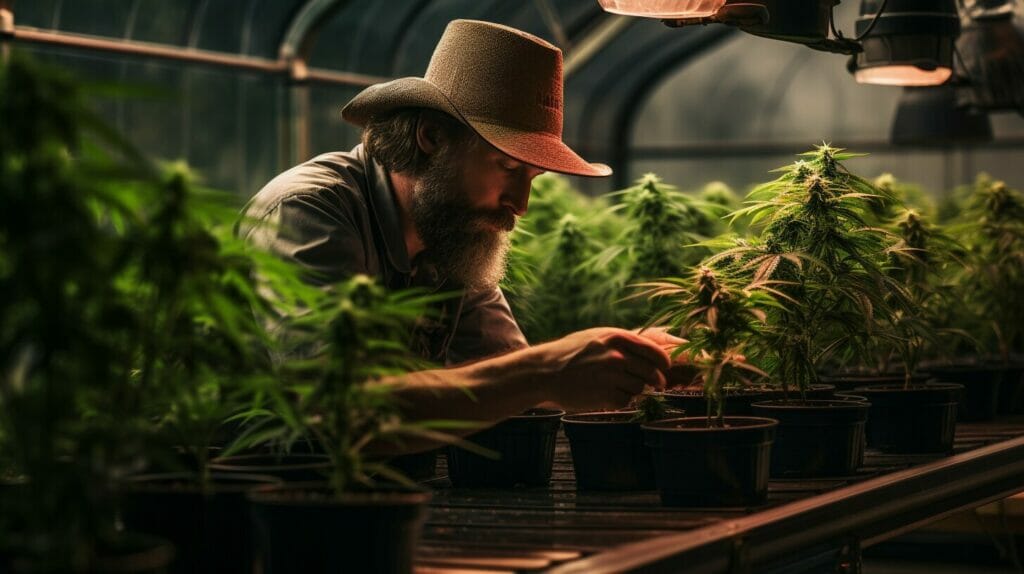
Choosing the Right Cloning Techniques
When it comes to cannabis cloning techniques, there are several options to choose from. Understanding the pros and cons of each method can help you choose the technique that is best suited for your clone game.
| Cloning Technique | Pros | Cons |
|---|---|---|
| Traditional Cuttings | Simple and inexpensive | Requires careful hygiene to avoid disease |
| Aeroponics | Faster root development | More expensive equipment |
| Tissue Culture | Produces disease-free clones | Requires specialized equipment and knowledge |
Traditional cuttings involve rooting a cutting from a mother plant in soil or a rooting medium. Aeroponics involves suspending the cutting in air and misting it with a nutrient solution. Tissue culture involves growing clones in a sterilized laboratory environment.
Ultimately, the right cloning technique for you will depend on your budget, level of expertise, and specific goals for clone production.
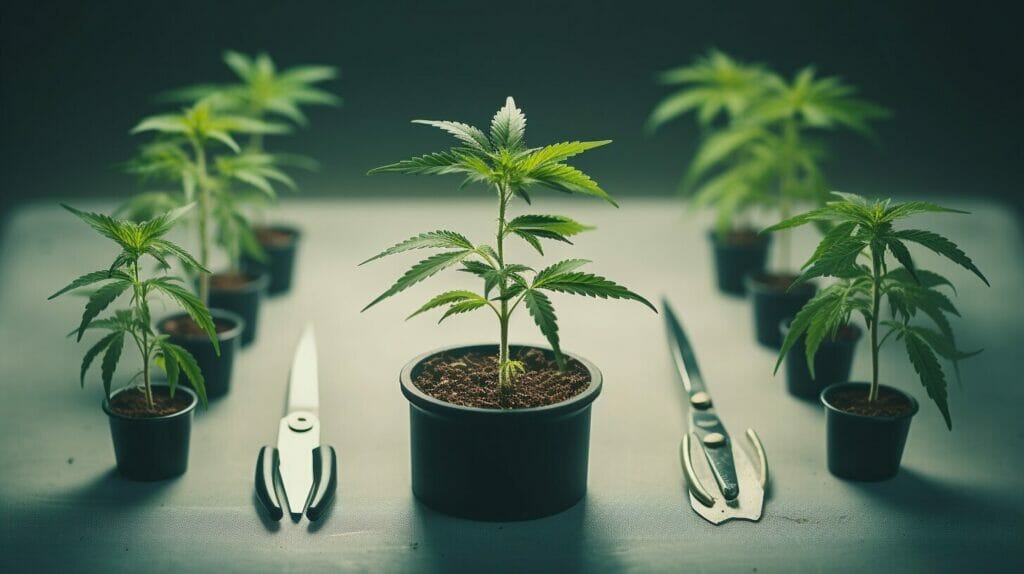
Essential Tools and Supplies for Cloning Cannabis Plants
Cloning cannabis plants requires specific tools and supplies to ensure successful propagation. Here are some essential items to have in your arsenal:
| Item | Purpose |
|---|---|
| Scalpel or razor blade | To make precise cuts when taking clones |
| Rooting hormone | To encourage root growth in clones |
| Humidity dome | To maintain high levels of humidity and prevent moisture loss in the cloning environment |
| Cloning gel | To help with root development and prevent infections |
| Heat mat | To provide consistent warmth to clones and promote root growth |
| Grow lights | To provide the necessary amount of light for clone development |
| pH meter | To monitor the pH level of the cloning solution and maintain optimal conditions for growth |
Having these tools and supplies on hand can greatly enhance your clone game and increase your chances of success. Keep in mind that some items, such as rooting hormone and cloning gel, may come in different strengths and formulations, so be sure to choose the ones that best fit your cannabis cloning techniques and needs.
Remember: the more prepared you are, the easier and more successful your cloning process will be.
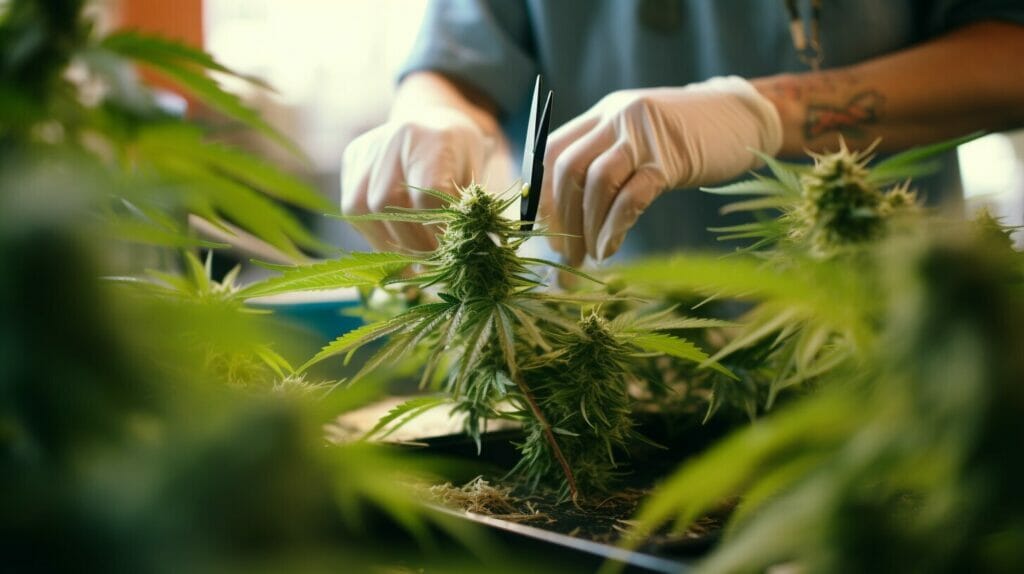
Creating the Perfect Cloning Environment
Creating the perfect environment for your clones to grow is vital for their success. Temperature, humidity, lighting and ventilation all play a role in creating an ideal atmosphere for your clones to thrive. Here are some cannabis clone game strategies to help you create the optimal environment:
Temperature
Clones require consistent temperatures to grow optimally. The ideal temperature for cloning is around 72°F or 22°C. Temperatures that are too low or too high can cause stress to your plants and inhibit their growth. You can use a thermometer to monitor the temperature and adjust accordingly.
Humidity
Humidity is another important factor to consider when creating the perfect environment for your clones. Clones require high humidity levels to stimulate root growth. Ideally, humidity should be between 70-80%. Using a humidity dome or mister can help maintain the perfect humidity levels.
Lighting
Proper lighting is crucial for clone growth. High-intensity lighting can cause stress to your clones, so it’s best to use fluorescent or LED lights to avoid this. A light cycle of 16-18 hours is recommended for optimal growth. Keep your lights close to clones but adjust them as they grow to avoid burning them.
Ventilation
Good air circulation is essential in the cloning process. Adequate ventilation helps to regulate temperature and humidity levels, and prevent mold and pests. Use a small fan to provide the clones with gentle airflow and avoid drafts.
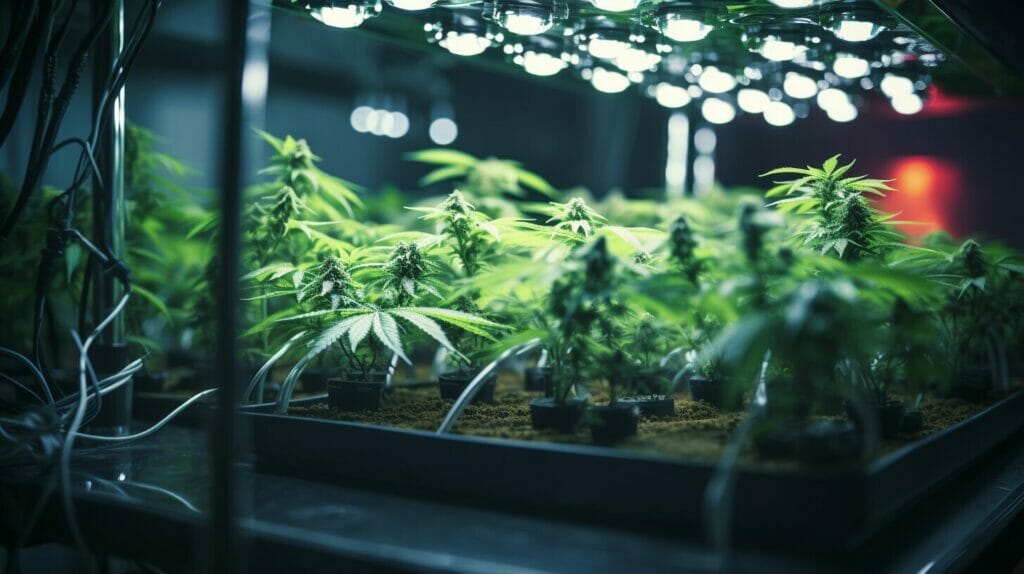
By creating a perfect cloning environment, you can ensure that your clones will grow into strong and healthy plants. Use the above cannabis clone game tips to optimize your grow space, and you’ll be on your way to mastering the clone game.
Best Practices for Cloning Success
Proper cloning techniques are essential for successful cannabis cultivation. Follow these best practices to level up your clone game and produce high-quality plants:
| Practice | Explanation |
|---|---|
| Choose healthy mother plants | When selecting mother plants, prioritize genetics, plant health, and age. Choose plants that are free from disease, pests, and physical damage. |
| Sanitize equipment and workspace | Clean all tools, surfaces, and containers thoroughly with a disinfectant solution to prevent the spread of disease and pests. |
| Take clean cuttings | Use sharp, sterile scissors to take cuttings from the mother plant. Cut at a 45-degree angle and remove any leaves or branches that will be below the soil line. |
| Use rooting hormone | Applying rooting hormone to the cut end of the clone will stimulate root growth and increase the chances of success. |
| Keep clones warm and humid | Provide clones with a warm, humid environment with temperatures between 75-80°F and humidity levels between 70-80%. Use a humidity dome or plastic bag to retain moisture. |
| Transplant carefully | When roots have developed, transplant clones into their own containers with fresh soil. Handle the clones gently to avoid damaging the roots. |
| Monitor progress | Check clones regularly for signs of stress, disease, or pests. Adjust environmental conditions or treatment as needed to maintain optimal growth. |
By following these best practices, you can increase your chances of success and produce healthy, robust clones for your cannabis cultivation. Remember to tailor your techniques to the specific strains and growing conditions to maximize your results.
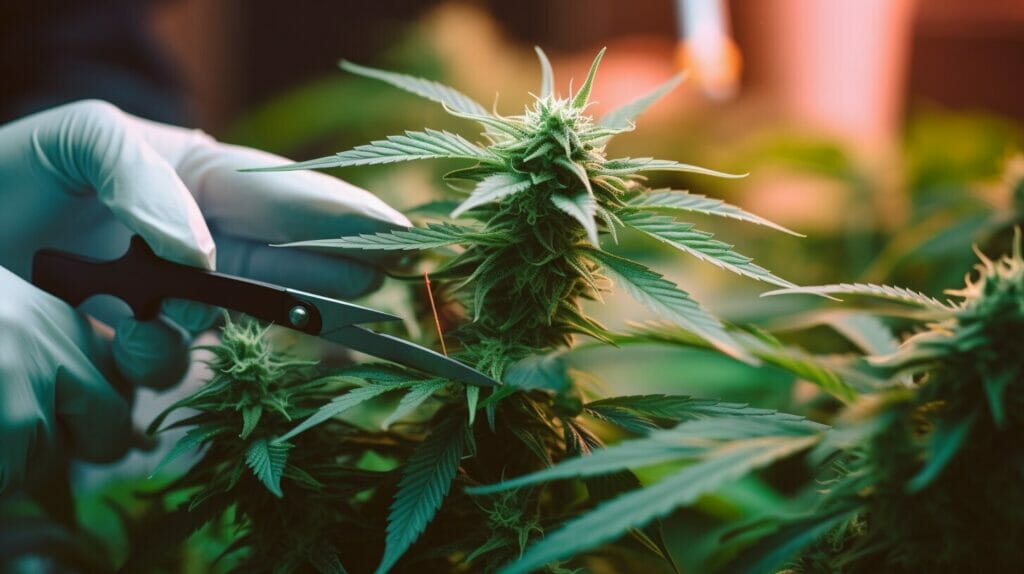
Troubleshooting Common Cloning Issues
Cloning cannabis plants can be a delicate process, and even experienced growers can encounter issues. However, by knowing how to troubleshoot common problems, you can increase your chances of producing healthy, robust clones.
One common issue is root rot, which can occur when the rooting medium is too wet or lacks proper drainage. To prevent root rot, make sure the rooting medium is moist but not overly wet, and ensure proper drainage by using a well-draining medium or adding drainage holes to your container.
Another issue is nutrient deficiencies, which can result in slow growth, yellowing leaves, and stunted roots. To avoid this, make sure you are providing your clones with a balanced nutrient regimen and maintaining proper pH levels. It’s also important to avoid overfertilization, as this can lead to nutrient burn.
Pests can also be a problem when cloning cannabis plants. Common pests include spider mites, thrips, and fungus gnats. To prevent infestations, keep your growing area clean and well-maintained and monitor your plants regularly for signs of pest activity. If pests are detected, treat them immediately with an appropriate pesticide or insecticide.
By being attentive to these common issues and taking steps to prevent or treat them, you can improve your chances of achieving successful clone development.
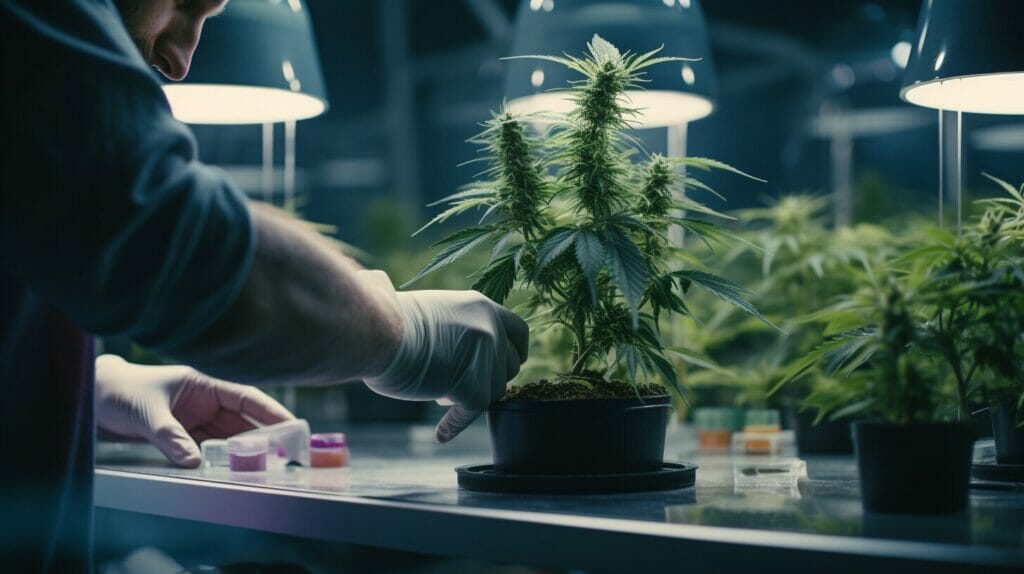
Advanced Strategies for Clone Game Mastery
If you’re an experienced grower looking to take your clone game to the next level, there are several advanced strategies you can implement to maximize your success. These techniques require a deeper understanding of cannabis genetics and the physiology of plant development, but they can lead to amazing results in terms of yield, potency, and overall plant health.
1. Tissue Culturing
Tissue culturing is a laboratory technique that involves growing cannabis plant cells in a controlled environment. This technique can be used to produce large numbers of genetically identical clones that are free of pests and diseases. Although tissue culturing requires specialized equipment and expertise, it can be extremely effective for creating high-quality clones.
2. Cloning from Flower
Cloning from flower, also known as “monster cropping,” involves taking cuttings from cannabis plants that have already begun to flower. These cuttings can be more difficult to root than traditional cuttings, but they can produce larger plants with increased yields and unique growth patterns.
3. Nutrient Regimen Optimization
Optimizing your nutrient regimen for clone production can help ensure that your clones have the necessary nutrients to develop strong roots and healthy growth. Experimenting with different nutrient concentrations and ratios can help you find the ideal balance for your plants.
By incorporating these advanced strategies into your clone game mastery toolbox, you can achieve even greater success in your cannabis cultivation. However, be sure to do your research and consult with experienced growers before attempting any new techniques.
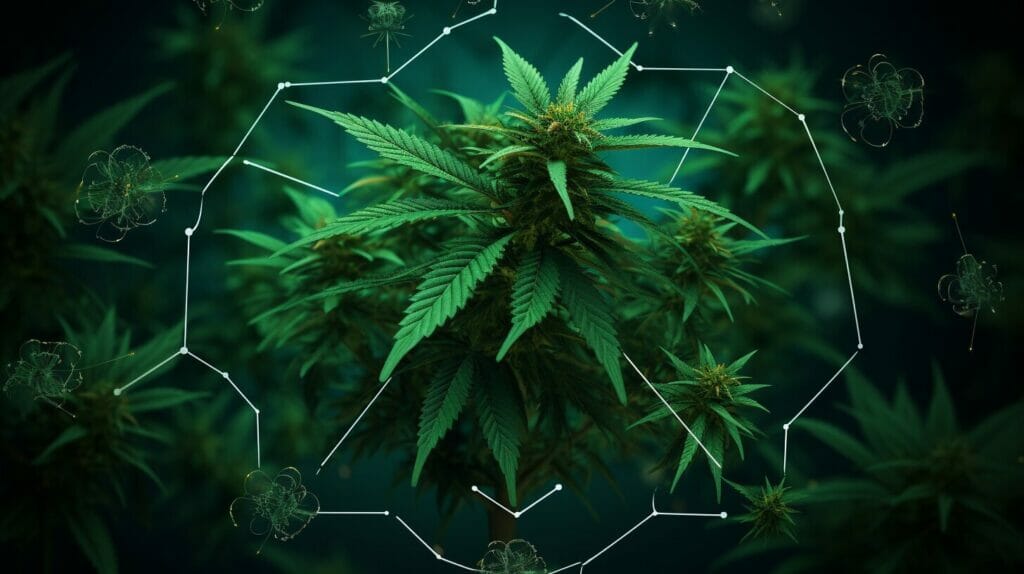
Maximizing Harvest Quality with Clones
Mastering the clone game can have a significant impact on the final harvest quality. By using healthy, well-rooted clones, growers can optimize their yield, potency, and overall plant performance. In this section, we will explore some cannabis clone game strategies and best practices to help you achieve maximum harvest quality.
Using High-Quality Clones
One key strategy for maximizing harvest quality is to use high-quality clones. This entails selecting healthy mother plants and using the best cloning techniques and supplies, including rooting hormones, humidity domes, and nutrient-rich growing mediums. By starting with the best possible clones, growers can ensure optimal development and final outcomes.
Following Best Practices
Another important factor in maximizing harvest quality is following best practices for cloning. This includes proper cutting techniques, adequate nutrition, and effective transplanting methods. By paying close attention to clone development and providing optimal environmental conditions, growers can ensure strong, healthy clones that will produce high-quality yields.
Maintaining Optimal Environmental Conditions
Environmental conditions play a crucial role in producing high-quality cannabis clones, which in turn leads to superior harvest outcomes. This includes factors such as temperature, humidity, lighting, and ventilation. Growers should aim to maintain a consistent environment that is conducive to healthy growth and development throughout the cloning process.
By implementing these cannabis clone game strategies and best practices, growers can successfully maximize harvest quality with clones. Investing in the best genetics, supplies, and techniques can lead to significant improvements in yield, potency, and overall plant performance, making it a worthwhile endeavor for all serious cannabis cultivators.
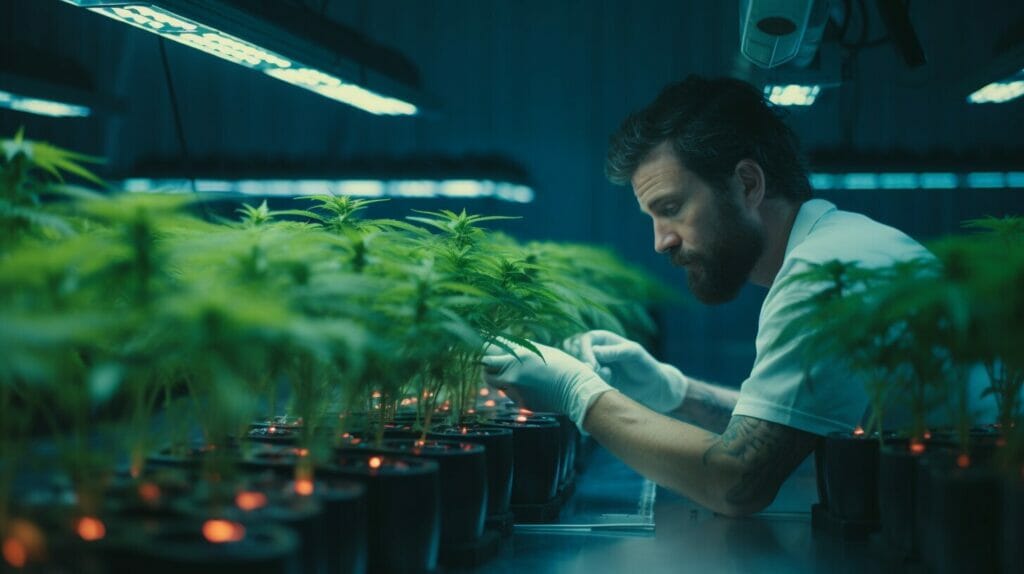
Cloning Cannabis: Conclusion
Mastering cannabis genetics is essential for growers looking to level up their clone game. Understanding the basics of cannabis genetics and its impact on clone quality is crucial to achieving high-quality cannabis plants.
Implementing the Techniques and Strategies
By starting with healthy mother plants, choosing the right cloning techniques, and creating the perfect cloning environment, growers can ensure successful clone development. Following best practices and troubleshooting common cloning issues can also lead to successful clone cultivation.
For growers looking to take their clone game to the next level, advanced strategies such as tissue culturing and cloning from flower can be incorporated into their cloning routine. Optimizing nutrient regimens and paying attention to overall plant health can also enhance clone game mastery.
Maximizing Harvest Quality
The benefits of mastering cannabis genetics and the clone game can lead to superior harvest quality. By using healthy, well-rooted clones, growers can expect increased yield, potency, and overall plant performance.
Level Up Your Clone Game
To maximize harvest quality and achieve superior results, growers must implement these techniques and strategies to level up their clone game. With dedication and diligence, growers can achieve success in clone cultivation and produce high-quality cannabis plants.
FAQ
Q: What is cannabis genetics?
A: Cannabis genetics refers to the study and understanding of the genetic makeup of cannabis plants. It involves analyzing and manipulating the genes responsible for various plant characteristics, such as potency, yield, and growth patterns.
Q: Why is mastering cannabis genetics important for cloning?
A: Mastering cannabis genetics is essential for cloning because the genetic makeup of a plant directly affects the quality of its clones. By understanding and selecting the right genetics, growers can ensure that their clones will exhibit desirable traits and produce high-quality yields.
Q: What are the different types of cannabis strains?
A: There are three main types of cannabis strains: sativa, indica, and hybrid. Sativa strains are known for their uplifting and energizing effects, while indica strains are more relaxing and sedating. Hybrids are a cross between sativa and indica, bringing together the characteristics of both.
Q: How do genetics determine plant characteristics?
A: Genetics play a crucial role in determining various plant characteristics such as growth pattern, bud structure, terpene profile, and cannabinoid content. Different combinations of genes result in unique traits that define each cannabis plant.
Q: Why is clone quality important for overall yield and potency?
A: Clone quality directly impacts the overall yield and potency of cannabis plants. High-quality clones with healthy root systems and desirable genetics have a higher chance of producing robust and potent flowers, resulting in a better harvest.
Q: What are the advantages of cloning over other propagation methods?
A: Cloning offers several advantages over other propagation methods. It allows growers to replicate the exact genetic traits of a desired plant, ensuring consistent quality in subsequent generations. Additionally, clones can mature faster than plants grown from seeds, leading to quicker harvests.
Q: How can I select and maintain healthy mother plants for cloning?
A: When selecting mother plants for cloning, prioritize genetics, age, and overall plant health. Choose plants with desirable traits, such as high potency or robust yields. Ensure they are free of pests and diseases, and provide them with proper care and nutrition to maintain their health.
Q: What are the different cloning techniques available?
A: There are various cloning techniques to choose from, including traditional cuttings, aeroponics, and tissue culture. Traditional cuttings involve taking a part of the plant and rooting it in a suitable medium. Aeroponics involves suspending the cuttings in a misted environment, and tissue culture is a laboratory-based method of cloning.
Q: What tools and supplies do I need for successful cloning?
A: To enhance your clone game, you will need essential tools and supplies such as rooting hormones, rooting mediums (such as rockwool cubes or peat pellets), a clean cutting tool, humidity domes, and a proper lighting setup. These items will help promote successful root development and overall clone health.
Q: How can I create the perfect cloning environment?
A: Creating an ideal environment for clones involves factors such as maintaining the right temperature, humidity, lighting, and ventilation. Aim for a temperature between 70-80°F (21-27°C) and a humidity level around 70%. Provide adequate lighting with a spectrum suitable for vegetative growth and ensure proper air circulation to prevent mold or stagnant air.
Q: What are some best practices for successful cloning?
A: To increase your chances of successful cloning, ensure that you use a clean, sharp cutting tool to minimize stress on the plant. Trim the cutting to have at least two nodes and remove any large fan leaves. Dip the cutting in rooting hormone, place it in a rooting medium, and provide adequate moisture and humidity to promote root development.
Q: How can I troubleshoot common cloning issues?
A: Common issues during cloning include root rot, nutrient deficiencies, and pests. To address root rot, ensure proper drainage and avoid overwatering. Nutrient deficiencies can be resolved by providing a balanced nutrient solution specific to the cloning stage. To prevent pests, maintain a clean environment and consider using beneficial predators or organic pest control methods.
Q: What are some advanced strategies for clone game mastery?
A: Advanced strategies for clone game mastery include techniques like tissue culturing, which allows for the mass production of identical clones, and cloning from flower, which involves taking cuttings from flowering plants to preserve desirable traits. Additionally, optimizing nutrient regimens for clone production can enhance overall quality and yield.
Q: How does mastering cannabis genetics enhance harvest quality?
A: Mastering cannabis genetics and the clone game can significantly improve harvest quality. By selecting and cloning plants with desirable genetics, growers can ensure consistent quality, potency, and yield in their harvests. Healthy, well-rooted clones have a higher chance of producing premium flowers with superior characteristics.
Suggested Articles
;)
;)
;)



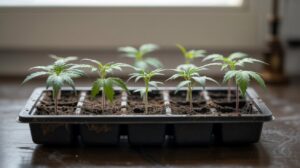
 14 Jul 2025
14 Jul 2025  5 min read
5 min read

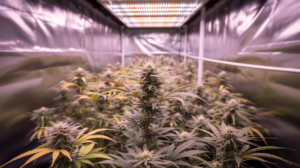
 September 04, 2023
September 04, 2023 


RESPONSES (0)
No responses yet. Be the first to respond!